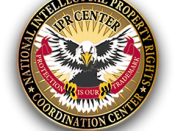Research Draft I
Intellectual Properties are those intangible items that produce or create products. The most popular justification we can give to support intellectual property are: The business matter between the creator and the society, that will gain limited monopoly of the product in return to distribute the creator's intellectual property. Also we might say that property rights are equal to the creator deserving the fruits of their labor. Intellectual property rights focus on the trade of the intellectual work in public policy, furthermore it is intended to balance the motivation to innovate and the diffusion of it, such that the costs are not higher than the benefits of those innovations. (Overview. 1) It is very common nowadays to speak of an "information society'' in which control of information or information based knowledge has replaced control over matter as an ultimate source of economic power. The intellectual creations protected through patents, trademarks, copyrights etc.,
constitute often a huge part of the companies' intangible assets.
There are different kinds of Intellectual Property with which usually come different regulations. Two examples of Intellectual properties are; copyrights and patents. Copyright being the law that prevents an individual to copy or use somebody's work without their permission or previous agreement, and patents being the right granted by the government to the inventor so that he can prevent others to sale or distribute his invention. With those rights obviously come people that don't respect those rights. We have two legal definitions that are helpful in this case; "Infringement means the violation of a legally recognized right and generally is used to refer to violations of most forms of intellectual property. Piracy is a form of infringement and typically refers to the unauthorized copying of copyrighted works" (Overview. 2.)
As mentioned before intellectual property does...


